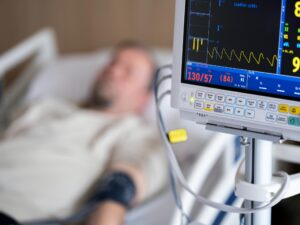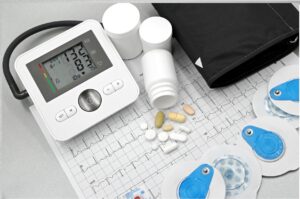Most of us know that quick “snap” sound of a standard 10-second ECG during a routine check-up. However if your heart sometimes skips a beat or you experience unexplained palpitations, that brief snapshot might not reveal the full picture. A 24-hour Holter monitor takes a deeper dive, recording every rise and fall of your heart’s activity throughout an entire day. Could this extended test be the missing piece in understanding those occasional heart concerns?
Why a Short ECG May Be Limited
A conventional ECG records your heart’s electrical signals for just a few seconds. It’s excellent for identifying persistent arrhythmias, such as atrial fibrillation, when they occur during the test. However, transient episodes like occasional fluttering, skipped beats or short-lived tachycardia can easily slip under the radar. If you only feel palpitations when rushing for the MRT or during an unexpected stress spike, you may leave the clinic symptom-free and test-negative.
How a Holter Monitor Works
A Holter monitor comprises small electrodes attached to your chest, connected to a compact recorder you wear for 24 hours. During that time, you carry on with your daily routine, walking, attending meetings or enjoying a meal, all while the device logs every heartbeat. After the monitoring period, a specialist analyses the recording, pinpointing any irregularities that coincide with your activities or symptoms.
Insights a Holter Monitor Can Provide
- Intermittent Arrhythmias
Sudden bouts of atrial or ventricular arrhythmias may occur unpredictably. A 24-hour record increases the chance of catching these fleeting events.
- Heart Rate Variability
Fluctuations in resting heart rate and variability can indicate how well your autonomic nervous system handles stress, exercise and sleep patterns.
- Silent Episodes
Some arrhythmias cause no noticeable symptoms yet increase long-term risk. Continuous monitoring can reveal “silent” events that warrant intervention.
- Effectiveness of Treatment
If you’re on medication for irregular heartbeats, a Holter study helps assess whether the prescribed dose keeps your rhythm in check throughout varying daily demands.
Who Should Consider a Holter Monitor?
- Frequent Palpitations: If you feel your heart racing or fluttering several times a week.
- Unexplained Dizziness or Fatigue: Especially when standard tests show no clear cause.
- Post-treatment Review: After starting anti-arrhythmic medication or following a procedure like catheter ablation.
- High-Risk Profiles: Those with a family history of sudden cardiac events or known heart disease who need closer surveillance.
Preparing for Your Holter Test
Your clinic will explain how to attach the electrodes and operate the recorder. Keep a diary of your activities and note when you feel any symptoms. Avoid soaking in the bath or sauna; water can loosen the electrodes. Otherwise, treat the day as you would any other, and let the monitor do its work unobtrusively under your clothing.
Interpreting Results and Next Steps
Once the data is analysed, your cardiologist will discuss any irregularities and recommend a plan. This might involve lifestyle adjustments such as stress management, diet, or exercise tweaks or further testing, including echocardiography or electrophysiology studies. The detailed insight from a Holter monitor often proves invaluable for a more accurate diagnosis and targeted treatment strategy.
A 24-hour Holter monitor can uncover hidden heart rhythm issues that a quick ECG might miss. If intermittent palpitations or unexplained symptoms are disrupting your life, speak to your doctor about whether continuous monitoring could bring clarity and peace of mind.
At Forte, we believe in empowering individuals to take control of their health through informed and natural choices. If you believe a Holter monitor can change your life for the better, discuss it with your doctor today. Book a consultation with Forte for personalised guidance.








